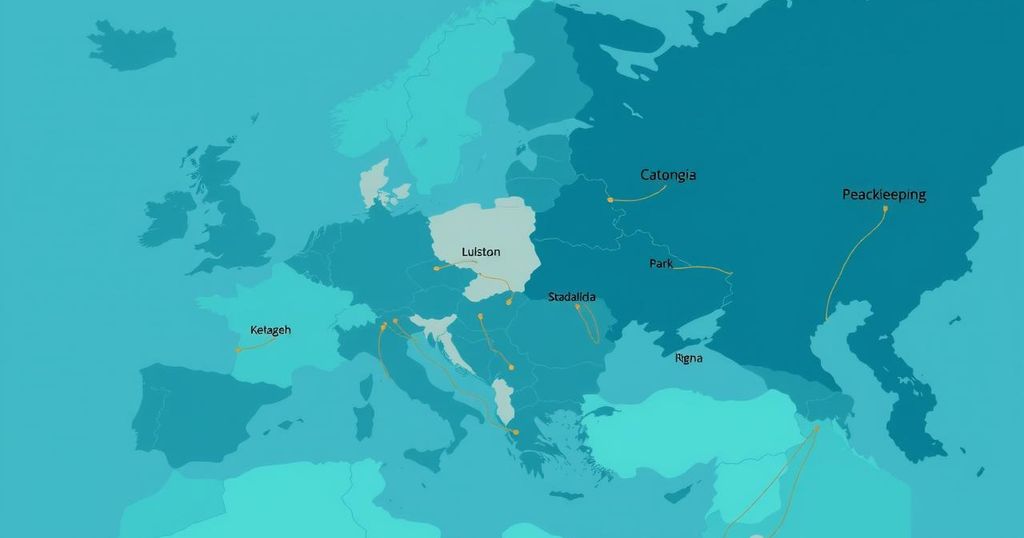Ukraine’s Territorial Debate: U.S. Envoy Suggests Potential Division Amid Conflict Escalation

Recent comments by Trump’s envoy indicated a potential division of Ukraine into Western and Russian influence zones, reminiscent of post-WWII Berlin. Despite assurances from Kellogg that he did not mean to suggest a partitioning of Ukraine, the discussions raise alarms in Kyiv regarding territorial integrity. The ongoing conflict escalates as drone attacks continue across Ukraine, further complicating peace negotiations.
Recent statements from retired Lt. Gen. Keith Kellogg, President Trump’s special envoy to Ukraine, have suggested a potential division of Ukraine into areas controlled by Western allies and Russia. This remark drew parallels to post-World War II Berlin, where countries were divided into zones of influence. Meanwhile, Trump urged a swift ceasefire during discussions between Kellogg and Russian President Vladimir Putin, which did not include Ukrainian representatives despite President Volodymyr Zelenskyy’s insistence that Ukraine participate.
Kellogg proposed a scenario where British and French forces could act as a security presence west of Ukraine’s Dnieper River, which runs through central Ukraine towards the Black Sea. He stated that Russian forces could remain in territories they already control, bordered by Ukrainian troops and a demilitarized area. However, Kellogg later asserted that his comments were misinterpreted, claiming they referred to a post-ceasefire support force rather than a partitioning of Ukraine itself.
The nuances of Kellogg’s remarks show critical differences from the historical division of Berlin, as the current scenario indicates Ukraine would not be surrendering land but inviting allies onto its territory. Yet, discussions of “zones” could spark concerns in Kyiv about the acknowledgment of Russia’s occupation. Ukraine has consistently rejected any peace proposals that suggest territorial concessions.
Russia’s Foreign Minister Sergey Lavrov previously indicated that Moscow would not agree to peacekeeping forces from NATO nations. This is part of a broader discourse suggesting a potential compromise that involves Ukraine giving up territory, a concept highlighted by Defense Secretary Pete Hegseth, who deemed the restoration of Ukraine’s pre-2014 borders unrealistic. Trump has focused on a rapid resolution to the conflict, contrasting with the Biden administration’s goal of a comprehensive Ukrainian triumph.
Despite these discussions, the conflict continues to escalate, as evidenced by recent drone attacks on Ukraine. Ukrainian officials reported 56 of 88 drones were intercepted. City officials reported injuries in Kyiv and Kharkiv due to these assaults. These developments underscore the ongoing volatility in the region and the challenges facing diplomatic resolutions.
The discourse around Ukraine’s territorial integrity continues to evolve, marked by discussions of potential divisions reminiscent of Cold War Europe. Statements from U.S. officials and ongoing military actions signal a complex and precarious landscape for peace negotiations. Ukraine’s steadfast rejection of territorial concessions highlights the challenges in reaching a consensus amid continued aggression from Russia, while the U.S.’s role remains influential yet contentious.
Original Source: www.nbcnews.com







